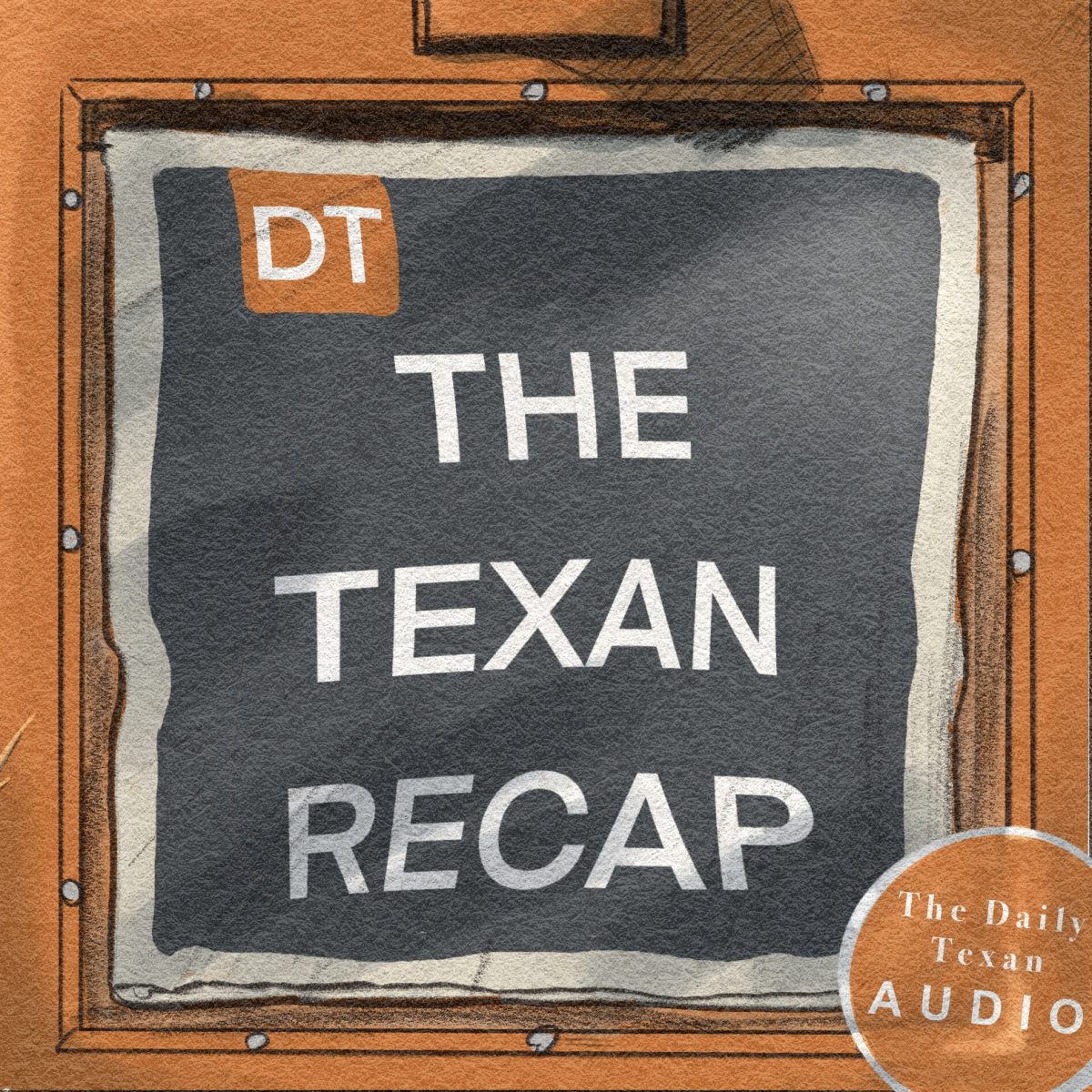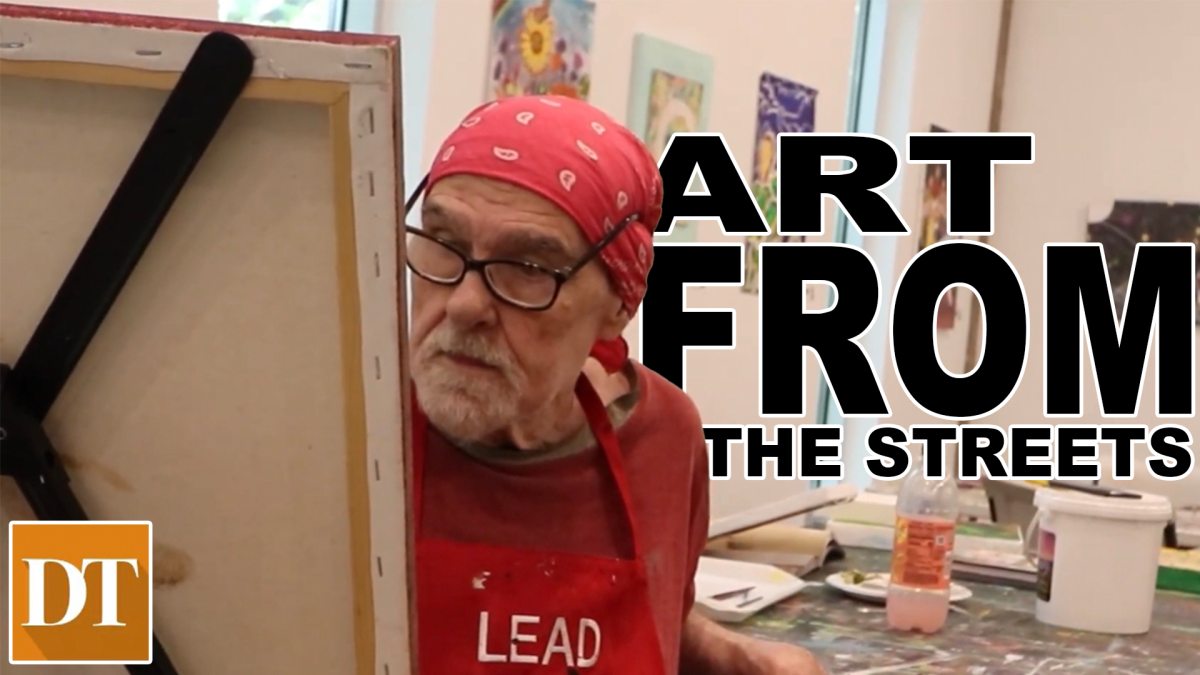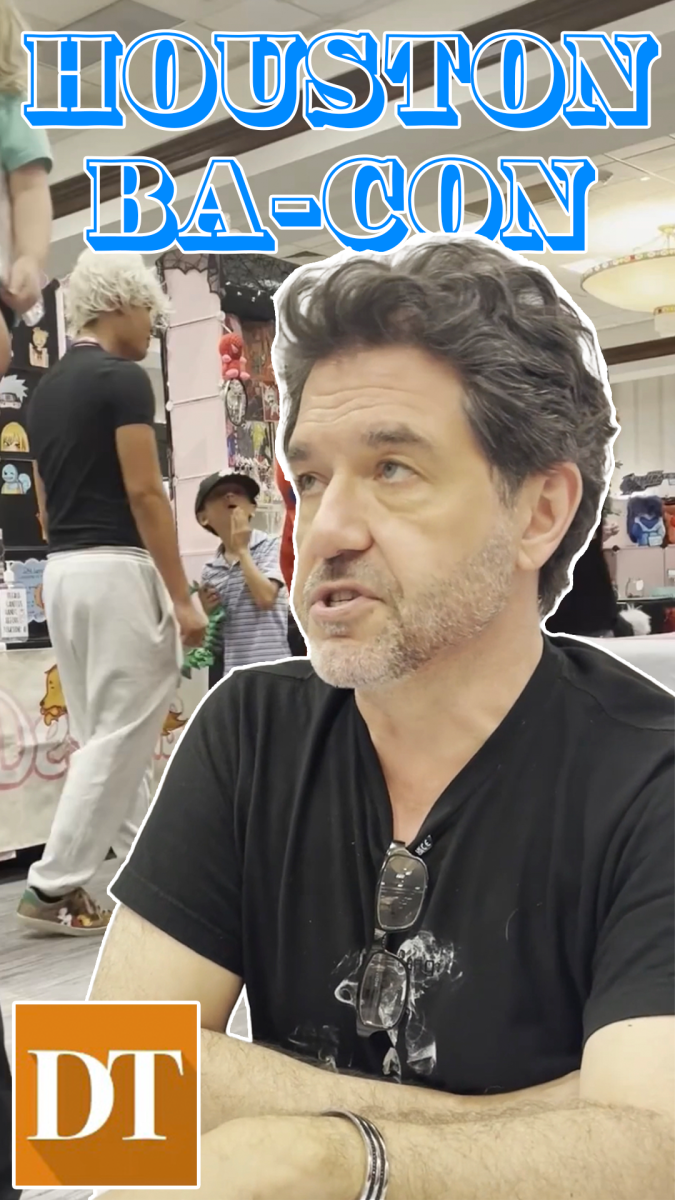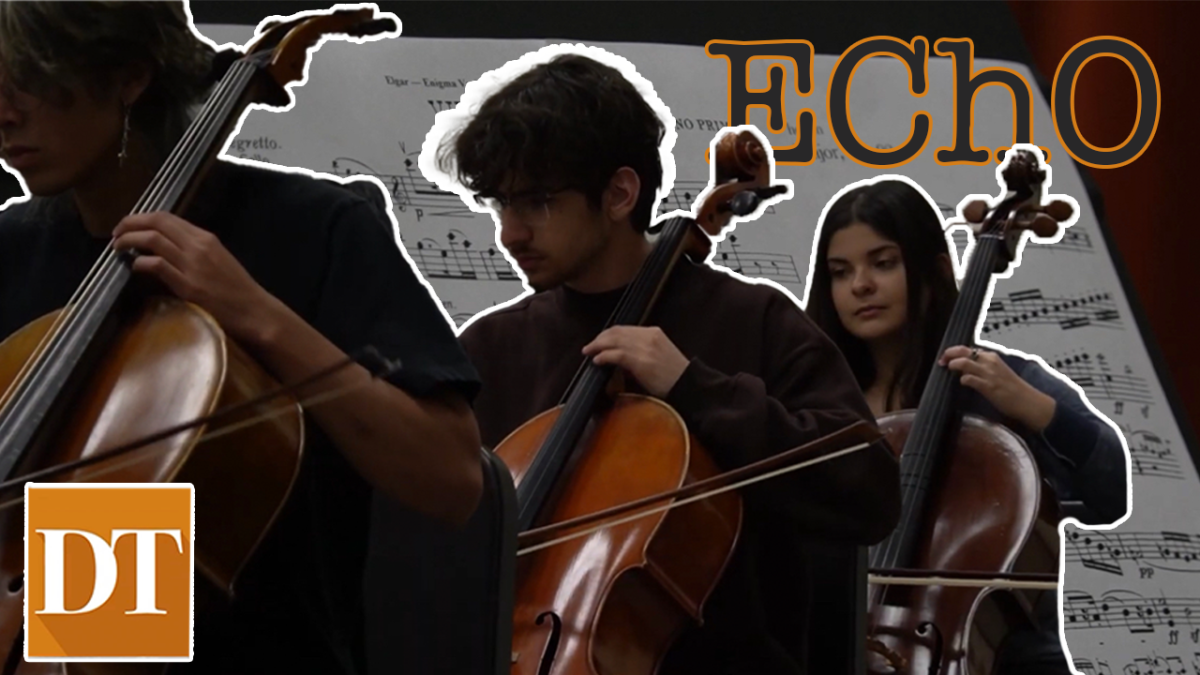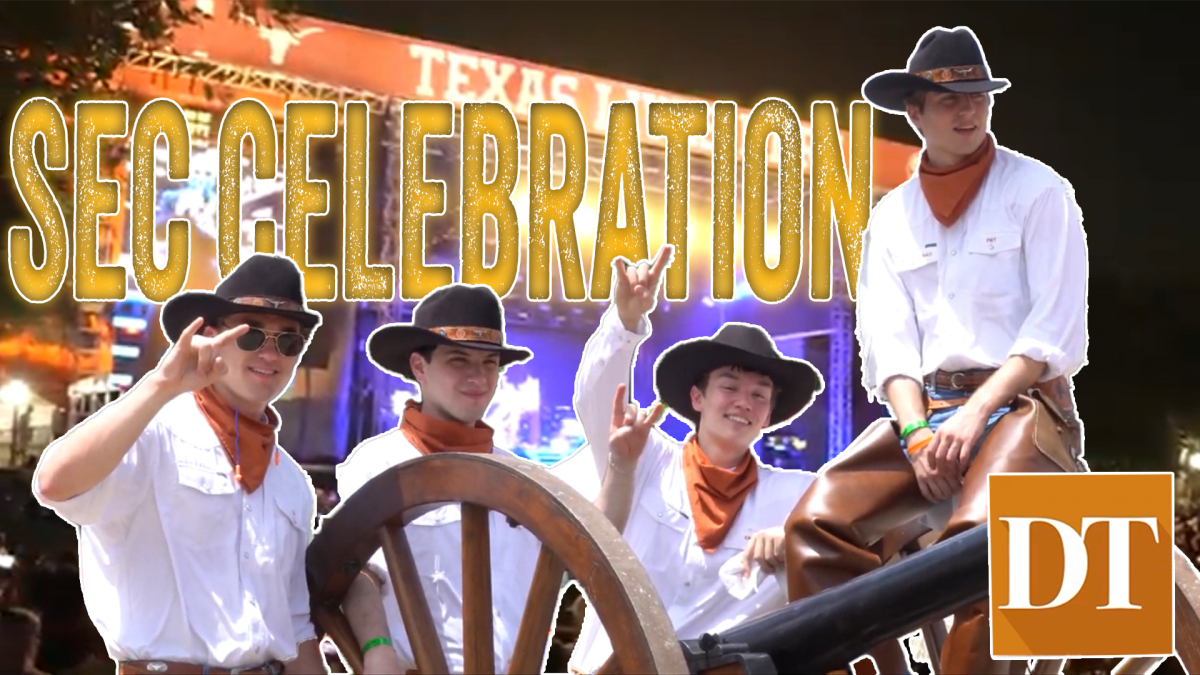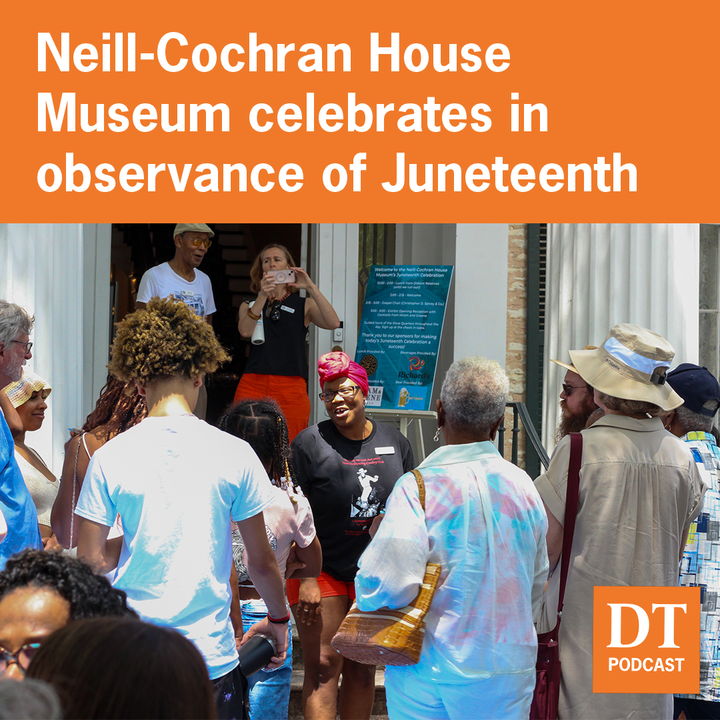Editor’s note: This podcast was originally published on Spotify on Dec. 9, 2023.
What makes a rivalry? In this episode, Associate Audio Editor Melody Jones explores what shapes and fuels these competitive relationships in real life and fiction.
Hosted and produced by Melody Jones. Cover art by Aislyn Gaddis. Music is Brer Krille, Tidal Foam and Kestral by Blue Dot Sessions.
*Music* (Brer Krille)
Melody: Fat City by Leonard Gardner depicts the lives of losing men. For them, their whole life is their boxing career, a finite sport. Only meant for young men crazy enough to take a beating. Billy Tully is turning 30 and has limited time left to reclaim the fight.
“He felt the guilt of inaction, of simply waiting while his life went to waste. No one was worth the gift of his life, no one could possibly be worth that. It belonged to him alone, and he did not deserve it either, because he was letting it waste. It was getting away from him and he made no effort to stop it. He did not know how.”
*Music Fades*
*Music (Tidal Foam)
Melody: Welcome to episode three of Austin bound. A podcast about reading from an Austin perspective. For today’s episode, I talked to Dr Tolga Ozyurtcu about sports and rivalries in fiction. Dr. O is a kinesiology professor at UT who teaches classes on sports in a sociocultural, historical and ethical context. We talked about what makes a rivalry, how rivalries affect players and fans, one-on-one rivalries and more. Here’s that conversation.
Today, we are talking about rivalries, as we are in our football season, and I don’t know too much about sports, personally, I’m more of a reader than an athlete. But like any other Longhorn, sports is fun. It’s really cool to engage in, and rivalries are especially interesting because they’re not quite competitors, they’re not just enemies and they’re not friends, of course. So, I wanted to know from you, what do you define a rivalry as?
Tolga: Well, that’s a really good question. And I like that you say there aren’t. They’re not quite competitors.
Like sports, to be a sport, it has to be competitive, right? But competitors in sports aren’t quite the same as competitors, in business or in nature, right? McDonald’s is trying to put Burger King out of business. But if we put Oklahoma out of business, that’s not actually very good for us, we almost, we need each other, right?
But I think history like you got to play a bunch of times, right? You can have a classic game between two teams, but that’s a one-off, right? So a certain amount of time, and I think it also needs some amount of competitive balance.
And then there’s the part that we just kind of invent, right, and that’s that identity piece that actually makes it interesting.
If we’re trying to make a formula, it’s those three pieces, and they’re not perfectly balanced. But longevity, some amount of competition, or competitive balance, and, and some sort of cultural hook that that brings it all together.
Melody: Yeah, I definitely see that cultural hook, especially when it comes to UT’s rivals there are some innate similarities between us and then some obvious differences.
And another thing about sporting events, I guess, is that they are super engaging to be and that’s like, the biggest draw, is that the excitement that happens in real time. So when we’re thinking about this, from a writing perspective, how can we replicate that excitement in fiction?
Tolga: That’s a really good question. Right? I mean, because that’s one of those unique things. Where sports and art don’t totally overlap, right?
I can read anytime I don’t have to sit over your shoulder while you’re writing it. Right. But even watching a recording of a game hours after it finished, feels like it lost something. And that is even a big gap from seeing it happen live in person?
And what tends to kind of sports and fiction tends to kind of just be a lens for exploring greater human ideas and struggles and tensions, right?
But I think what a good writer can do is generate some of that immediacy and tension that you experienced when watching a sports event and get that onto the page.
That may be a testament to those writers who can kind of do with words what, you know, athletes can do on the field in terms of that, almost dizzy, associative, disassociative kind of experience of time and experience something happen in front of you.
Melody: I like how you compare the two that they’re both disassociated experiences, that you’re not really completely in your own head, whether you’re in a live sporting event, watching it happen, or if you’re reading a book, because you’re not thinking about the outside world. I never thought of it that way. a lot of times in sports fiction fiction, in general, we kind of use it to explore like, the bigger context of the world. And part of that exploration I feel comes from having access to a character’s inner dialogue. So how is this used to explore characters’ relationships with their sport? And then with their rival?
Tolga: You don’t want to dismiss the surface level, which is like the sports can just provide powerful kind of metaphors and imagery. And I think what maybe fiction achieves is it lets you spend time with athletes So outside of the sports context or outside of like, the competitive context, people have such strong opinions about real-life athletes. But they’re formed at this great and really heavily mediated distance.
I saw Travis Kelce, got another 400,000 followers after his new romantic interest there. But like, we don’t, we don’t know them, right?
We know, like, in principle, they’re training and resting and getting ready for the game, or whatever it is. But I think when I think of the good sports fiction, it really has this almost humanizing effect.
There’s a sense that that’s just how we think of them in this very kind of limited space. And maybe fiction is one of the avenues or we can kind of think of them as mortal humans.
Melody: Yeah, that’s a really interesting relationship.
In fiction, we’re reading fictional characters, obviously, they’re not real, but in a way, we are humanizing athletes who are treated sometimes as characters, because, of course, we don’t know their full story.
Yeah, and one last question before we get into your book recommendation that you reminded me of. Um, so you mentioned that one-to-one rivalries can be very different when it comes to group rivalry. So I just wanted to ask what, what changes there in the dynamic between like a team rivalry to a one-to-one rivalry.
Tolga: So I think there are a couple of things. So one, the individual rivalry is much more short-lived, right? We’ve been playing, you know, we’ve been playing some of these football and baseball rivalries at UT are well over 100 years old. But an individual rivalry is, you know, it’s bound by the length of a career, right?
I think it becomes much more of this. It’s a much more direct narrative with the individual rivalry, right?
It’s much more kind of in the open. And it’s much less open to debate because you have like, there’s the data, these two played against each other 10 times 20 times. And this how many times she won this how many times she won, right?
If you lose in a football game. There’s dozens of people you can blame, even if you were, you know, critical to that boss. So I think maybe that’s where it kind of it ruptures but it also has the potential to be it also kind of makes legends.
Individual contests become these kind of mythical things, you know, with like Muhammad Ali, if you’ve heard of maybe like the Rumble in the Jungle, or like these sort of like these become almost cultural level moments were two people who were great kind of competitors like, came together. And hopefully, like we were all better off for just having been able to experience that.
I’m kind of coming to the conclusion that individual sports are actually it’s a loaded term, but better, because because of because of this, they’re a more true expression of human potential. Because there’s no one to there’s no one to hide behind. You either did it or you didn’t. And everyone knows. I don’t know if I could have handled that pressure.
Melody: Yeah, I mean, that may be a hot take for sports fans. But I kind of agree with you. Like, there’s so much risk and reward when it comes to engaging in an individual sport. And when it comes to like the outside perspective, when you’re put in kind of like a rivalry position, what that rivalry does to you as a person can be very harmful, or it could be really great. So to kind of segue into the book recommendation, you have a recommendation for me that talks about kind of a one-on-one rivalry, would you mind telling me a little bit about your recommendation?
Tolga: So the book is Fat City by Leonard Gardner. And I’ll admit, I had a tough time coming up with a recommendation for you because, well, there’s a lot of sports fiction, there’s actually not. To my knowledge, I can’t think of any that really chronicle rivalries.
I don’t want to I don’t want to spoil things for folks. Because it’s short, and everyone should read it. And you know, a lot of people smarter than me say it’s one of their favorite books. So I think it’s well indoors, but there’s not really much sports competition between the two protagonists who are kind of the rivals in this case.
But they’re kind of their two boxers. And I guess I can, again, I’m trying to toe the spoiler line, but it’s their two boxers, and neither of them is very good. But one of them has kind of been beaten up, and he’s trying to cling to what’s left of a career, and the other is younger. And at the start of the book, he’s just kind of a guy in a gym, and maybe he’s gonna try to be a boxer. And so in this sort of, pairing, Gartner kind of creates gives us this sort of classic these, these two archetypical, you know, the young guy with the future ahead of him and the older guy who’s not actually that old.
And so you have these two guys who are kind of just in each other’s orbit. And, again, maybe a testament to his writing it, it feels like the book is all one kind of battle between the two of them and the ideas that each of them kind of represent, even though they’re not actually like stepping into the rink together. So I’m kind of taking rivalry loosely, but I also think anyone who reads it will hopefully feel me that is like now that there’s the idea of rivalry is very much baked in here. Even if it’s not, you know, Longhorns, Sooners, Longhorns, Aggies type rivalry that’s being played out on the field repeatedly.
Melody: Yeah, I mean, I think that’s the kind of rivalry we expect from reading anyway. Because obviously, like the enemy trope isn’t the same as rivalry. But a lot of the time in different genres, we have that same kind of dynamic between two characters who may never meet, but represent different ideologies.
I guess as a final closing question, we’ve talked about how sports fiction is, I don’t know maybe more or less, not as well known in the mainstream and rivalry, especially in sports fiction is hard to find. So what makes sports fiction worth reading for a sports fan or for a fan of literature? Who has no interest in sports?
*Music* (Kestral)
Tolga: I guess I’ll say for the, for the sports fan, you’ll find sports fans who read a lot of sports nonfiction. And I think actually, by challenging yourself to read fiction, you can actually get a deeper understanding of us. This thing you care about so much of the thing you love.
We know a lot of facts and dates and who did what, when and this and that, like I said, there, there’s almost this sort of detachment and sort of de-contextualization, like the sports are almost happening in a vacuum or sort of this separate realm. And I think the good sports fiction, kind of pulls it back into life. And like in Fat City in particular, it’s like you’re just brutalized by, like, the mundanity of these guys’ lives.
I think there’s a richness in good sports fiction that can add to our appreciation of real-life sports. And I think for the nonsports fan, or even like the sports hater, challenge yourself, it’s cool to kind of engage with a different world, you know, in a sense. You know, I don’t know how far I can take this, but it’s like we read fantasy novels that exist in these kind of made-up lands. And in a weird way, sports are, you know, less ambitious, fantasy in real life, right
I think I’d say the same thing to anyone who, you know, resists reading across genres. Like, there’s, there’s good stuff in every direction, so maybe just a more general recommendation to take chances beyond what you normally read, because there’s just so much good stuff out there.
Melody: Yeah, I’m coming from a nonsports bent, I can definitely see how people who aren’t in that hemisphere can see it as something arbitrary or mundane. But there is always more depth to something that is mundane, or something silly. Yeah,
Tolga: There is, right? And I think that like mundanity, and arbitrariness like, and that’s, I think I was trying to get at this a little bit earlier, like, anyone who’s like, this is ridiculous. It’s just a bunch of people running in circles or trying to put one object into another object, like, they’re not wrong. But again, it’s like, let’s be a little kind to, you know, couple billion people around the world who find a lot of value in this.
To the sports nuts. I’m going to say, don’t take your rivalries too seriously. And to the sports agnostics. I’m going to say, give us a chance because you might have more fun than you think.
Melody: First things first, Tolga is so right about the potency of imagery and metaphors you can get out of sports. The backdrop of boxing used to tell a story of two failing desperate men meshed so perfectly with Fat City’s themes. Boxing is a brutal sport. It’s demanding, obsessive, and most of all destructive. The boxers of Fat City destroy themselves for everything to come crashing down one way or another, whether that be suffering a major injury, spiraling after an unfulfilling victory, or simply aging out of one’s prime. There are no winners in Fat City, just fighters.
Billy Tully’s and Ernie Munger’s trainer Ruben Luna describes this perilous fight as fatalistic optimism, like finding a way to keep moving forward even if it kills you. These men are desperate and detestable, as Ernie resigns himself to an indifferent marriage, and Tully drinks himself to the brink. They search for solutions to their miserable lives and come up short every time. Lost, without love, yet built to last.
“They had succumbed to whatever in them was weakest, and often it was nothing he could even define,” Gardner writes, as Luna reflects on failed boxers. “They lost when they should have won and drifted away…They were all so vulnerable, their duration so desperately brief, that all he could do was go on from one to the other in quest of that youth who had all that the others lacked. There was always someone who wanted to fight.”
Fat City is a bleak story about the aimless lives of failing boxers, but it is by no means, without heart. There’s nothing more human than persistence in the face of despair. I’ll admit, the first chunk of sad mundanity this book dedicates itself to did not interest me but pays off later as we witness Tully and Munger’s struggle to take control of their lives. Leonard Gardner successfully conveys a universal experience through the lens of boxing and it packs a serious punch.
Austin Bound is a production of The Daily Texan Audio Department. If you liked this episode subscribe to The Daily Texan Podcasts on your streaming platform of choice and follow us on X @texanaudio. This episode was reported and edited by me, Melody Jones. Cover art by Aislyn Gaddis. Music is Brer Krille, Tidal Foam and Kestral by Blue Dot Sessions. Thank you for listening!
Quotes:
“He felt the guilt of inaction, of simply waiting while his life went to waste. No one was worth the gift of his life, no one could possibly be worth that. It belonged to him alone, and he did not deserve it either, because he was letting it waste. It was getting away from him and he made no effort to stop it. He did not know how.”
― Leonard Gardner, Fat City
“Profoundly moved, he kissed the lax waiting mouth with exquisite unhappiness.”
― Leonard Gardner, Fat City
“It was more a fatalistic optimism than determination, and though he was not immune to anxiety over his boxers, he felt he was immune to despair. Limited no longer by his own capacities, he had an odds advantage that he had never had as a competitior. He knew he could last.”
-Leonard Gardner, Fat City
“Since his first bouts as a fourteen-year-old flyweight, he had many times gone into the ring after nights of bedless sleep, with half-healed cuts, broken nose, sore throat, fever, venereal infections, and had learned to have faith in his body. A few times he had been knocked down and stayed down- not from fear but from the certainty of a severe beating- and that had seemed right too, because his body was his livelihood. Early he had learned how to last, and he had lasted now fifteen years.”
–Leonard Gardner, Fat City



